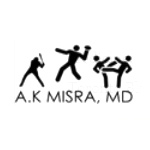Health Tips brought to you by U.S. HealthWorks Medical Group. Our experienced medical experts provide information here that we hope will broaden your health care knowledge.
As we begin a new year, many people are trying to improve their health – from better eating habits to drinking more water. Today we talk to Dr. A.K. Misra, medical director for U.S. HealthWorks in South San Francisco, about hydration and which beverages are best. Dr. Misra is double board certified in Sports Medicine and Internal Medicine.
Q: Correct me if I am mistaken, but I remember hearing as a child we should be drinking at least eight glasses of water a day. That seems like a lot – what are ways we can go about this?
A: Yes, we all should do our best to hydrate well because we are always losing water via convection, radiation, conduction and, of course, from urination. Believe it or not, water is also constantly lost through blinking and talking, and more obviously by sweating. This continuous loss of water must be replaced and, ideally, exceeded to be “topped off,” otherwise we fall behind and start to feel dehydrated. This is especially pronounced when we are ill, traveling or exercising.
While the exact figure would be difficult to measure and varies from person to person (and between males and females), it is estimated we lose about 1.5 liters of fluid a day at baseline, which is not all that different than eight glasses of water. This means that we should be taking in closer to three liters to offset this and in order to have adequate reserve, as explained in this article from the Mayo Clinic.
In a prior blog, we made a special point that keeping hydrated has a tremendous impact on training and exercising. Dehydration can even affect elite level athletes, as seen this last weekend in the NHL.
The other consideration, of course, is that we don’t just eat dry powder. If you eat fruit such as a slice of watermelon or some grapes, you are helping your hydration status because the water content in each of those is relatively high. Collectively from both food and drink, we should be mindful of our water intake.
Height, weight, age, altitude and concurrent medical conditions should all be taken into close consideration. One easy way to know if you are falling behind on hydration is to check how dark your urine looks. Here is a simple chart from my Sport Medicine fellowship that athletes were told to use while training:
Q: Given that hydration is so important, how can we do it in a healthy way?
A: No doubt about it, water is still the best manner in which to hydrate. However, some people find water boring and end up reaching for other choices that appear attractive – and may even seem healthy – but often are not. This includes beverages such as vitamin water, juice-oriented products (often made from concentrate and mixed with many different non-juice ingredients), zero-calorie sodas and more.
I personally believe that tea is one of the best ways to add appealing taste to water in a responsible, healthy and worthwhile way. There are numerous types of tea available. While I prefer hot tea, people can just as well make iced tea and be conservative with sweeteners (these are better to avoid altogether, if possible). There has been an increased interest in stevia as a natural sweetener, especially since it has no calories. While the taste is different than sugar, it is certainly a better way to go to lessen our sugar burden.
My first directive on choosing a drink is to read labels carefully before purchasing anything, as I find this is one of the biggest failings of consumers in general when it comes to eating and drinking. What should set alarm bells is if there is a high sugar content, and if sugar-oriented ingredients are listed more than once (including syrups of any kind, such as high fructose corn syrup).
Further, consumers should know that typically the quantity of ingredients is listed first to last on labels. Avoid colors and “flavors” of any kind. The FDA has a very loose criterion for what is considered a “natural flavor” versus an “artificial flavor.” Sadly, artificial flavors can easily be more natural than natural flavors and the opposite holds true, too (see Fast Food Nation). Ultimately any “flavor” is a chemical and is best avoided.
Q: Any other simple tips to help me make more informed choices when it comes to hydration?
A: Yes – I find these guidelines helpful when I make purchases (this applies to food, too):
- The longer the list of ingredients, the shorter your life.
- If it needs a commercial to bring it to your attention, you don’t need it.
- If you can’t pronounce the ingredients or don’t understand them, don’t put them in your body.
- Understand that while juices appear innocent (e.g. organic varieties, 100% pure juices) they still have a high-calorie content. It is quite easy to put on weight rapidly drinking them on any sort of regular basis.
- While a cold beer may appear to “quench that thirst” – especially on a hot day – remember it still has alcohol content. Alcoholic beverages should not be thought of as hydrating in any way, because alcohol is dehydrating by its very nature.








